During one of the presentations that we received in January at our annual conferences, we were told that this year 40% of the population would be going to the polls. Now, with Macron’s decision for an election, that figure has increased to almost half the world’s population.
Financial update July 2024 – France
By Katriona Murray-Platon
This article is published on: 4th July 2024

Having already voted in the European elections earlier in June, I will now be voting in both the French elections at the end of June and the UK elections in July. Three elections in the one year! The first round of the French elections was on Sunday 30th June and the second round on the following Sunday, 7th July.
What does this mean?
Well, notably it means that any law reforms that had been going through the French parliament have now been suspended. What will be on the parliamentary agenda will be determined by whichever party gets the majority.
So far the markets seem to be less interested in the elections and more interested in the decisions of the central banks. With the European Central Bank reducing its interest rate by 0.25% on 6th June 2024, all eyes are on the Fed and the Bank of England to make a decision about their rates in the coming months.
As from 1st July 2024, Autoentrepreneurs carrying out a non-regulated ‘liberal’ activity under the micro-BNC regime will have to pay increased social contributions. The rate will increase to 23.2%.
Come the autumn months we will have to pay taxe foncière and taxe d’habitation for those with second homes. These taxes increased by 7.1% last year because of inflation and they are predicted to increase again this autumn by 3.9% due to the reassessment of the rental values. There may also be an additional increase if the local authorities of towns of more than 100,000 inhabitants so decide, which will be 1.2% on average.

From 31st July and until 4th December, you will be able to amend your online tax declaration on the impots.gouv.fr website if there is any information you missed out or you realised there were mistakes made but you were just trying to submit the return before the deadline.
Your tax statements will be available over the summer from 24th July and end of August. If you have paid too much tax, your statement will be available between 24th July and 2nd August online or between 24th July and 29th August by post. If you still have some tax to pay after your monthly contributions your statement will be available online from 26th July and 2nd August or by post between 25th July and 23rd August. If you opted not to receive paper statements, you will receive an email letting you know that your tax statement is online.
If you have less than €300 to pay in tax, this amount will be taken on 25th September 2024 but if you have more than this, then the payment will be spread out into 4 payments taken 25th September 2024, 25th October 2024, 25th November and 26th December 2024. You will continue to pay your normal monthly tax payments on 15th of each month but these will be adjusted as from September.

July is a busy month for me as I still have a few review meetings to do before the summer holidays. So please do use this time to get in touch if you have any questions or any matters you want to address before the summer.
I shall not be doing an Ezine article in August but instead will look forward to bringing you all the latest financial and tax news in September!
Financial update June 2024 – France
By Katriona Murray-Platon
This article is published on: 5th June 2024

Tax season is pretty much over for another year, and by the time of publication most of the deadlines for filing will have passed. However, if you have an accountant who does your tax return they will usually be given extra time to file the returns. If you submitted your own return but have questions about whether you did it right and would like to speak to an accountant about it, you should try to speak to them late June, early July or early September to submit an amended return.
May is always a busy month for me, not least because of all the tax enquiries. However I also found time to write an article on French pensions. If you haven’t seen it already you can find the link here (https://spectrum-ifa.com/french-pensions/). If you have any questions on this article or your French pensions in general please do let me know
People often ask me whether they have to send in documents with their tax return or whether they are likely to get asked about what they have entered. The fact of the matter is that very often the tax office only really focuses on the tax returns of the very high earners (income tax, wealth tax, inheritances etc…). The French tax office generally go after the biggest fish, notably those with an income of over €1million per annum or gross assets that are subject to wealth tax of more than €6.9 million. However if you do start to do a wealth tax return you may find that your local tax inspector will take more of an interest on this one.
In 2020 there were a lot of people who, after many years of holidaying in France and owning a property here, decided to be considered resident in France before the Brexit deadline of 31st December. For wealth tax purposes you are exempt from declaring your worldwide assets for the first five calendar years of your residency. Unfortunately, even if you arrived late in 2020, this would still be considered your first calendar year. This means that as from 2025, if your world wide assets are worth more than €1.3million as on 1st January 2025, you will have to do a wealth tax return next year. You only have to declare your property assets, irrespective of where they are in the world. If you have money in investments or assurance vies, these are not included in your wealth tax return.
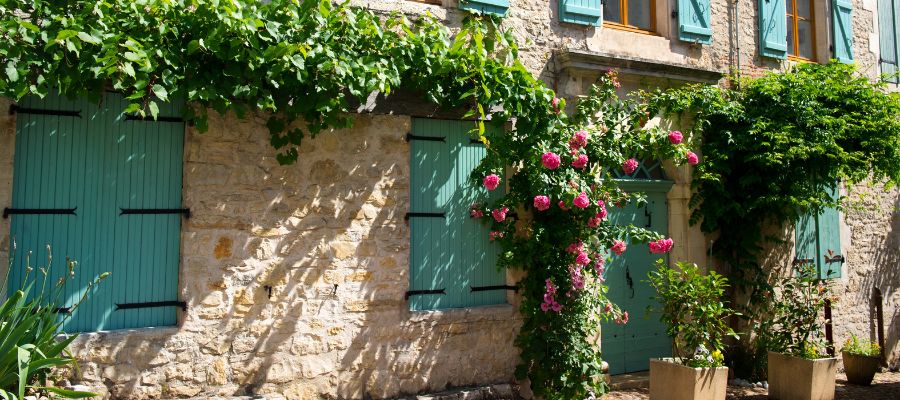
At this time last year, after having completed our tax returns, we still had to do the property declaration. This was an online declaration. Now, almost a year later, the tax authorities have produced a paper format of the declaration. You can download the paper form here https://www.impots.gouv.fr/formulaire/1208-od-sd/declaration-doccupation-des-locaux-par-le-proprietaire or some tax offices may have copies available if you cannot print it yourself.
Every year I get a lot of people contacting me about Trusts. Many years ago I wrote an article on Trusts which you can find on our website (https://spectrum-ifa.com/trusts-and-french-residency/). I have not updated the article because the law has not changed a great deal on this subject and much of the information is the same. If you are the trustee, settlor of beneficiary of a trust and you are resident in France you have to declare the existence of the trust using the form Trust 1 (https://www.impots.gouv.fr/formulaire/2181-trust1/declaration-de-constitution-de-modification-ou-dextinction-dun-trust).Then every year you have to declare the value of the Trust as at 1st January of each year using the Trust 2 form (https://www.impots.gouv.fr/formulaire/2181-trust2/declaration-annuelle-de-la-valeur-venale-au-1er-janvier-des-biens-droits-et-)
The deadline for filing the annual value declaration, which must be sent to the Non-Residents tax office, is 15th June.
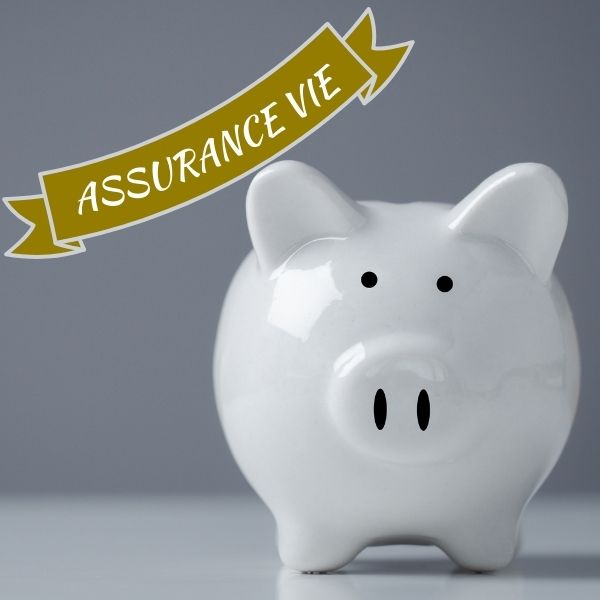
Finally, for those with Pru assurance vies or those thinking of investing in a Pru Assurance Vie, on Tuesday 28th May 2024 the Prudential Assurance Company (PAC) board reviewed the Prufund Expected Growth Rates (EGR) as part of the quarterly review process. The Expected Growth Rate (EGR) is the forward looking element of the Prufund smoothing process.
For this quarter the EGRs of the Prufunds in our assurance vie products remained unchanged. The Unit Price Adjustment (UPA) part of the smoothing process, which is a backward looking element, and which is formulaic and non-discretionary are also reviewed quarterly. This quarter there was an upward UPA for the Prufund Growth USD fund of +2.71%.
If you have any questions on any of the matters mentioned above please do get in touch. I would be happy to arrange a phone call, video meeting or in person meeting to answer your questions or review your financial situation.
French pensions
By Katriona Murray-Platon
This article is published on: 17th May 2024

Many people come to France for “la belle vie” in retirement, but a large number of us (myself included) moved to France way before retirement and have even spent several years working in France contributing to the system here. Therefore when it comes to retirement, in addition to any other state or private pensions, we will need to apply for our French pension(s)..
Since 2017 the procedure to apply for your French pension has been simplified. You make one application and all your pensions from the various pension organisations will be paid to you. However, in practice things may not always go as smoothly and there have been numerous complaints from those trying to claim their French pensions.
No matter how long you have worked in France, or which pension body you have contributed to, you can consult your pension rights on this website www.info-retraite.fr. This is the website that you need to use to apply for your pension. You can also download from this site your pension entitlement statement. If you are getting close to retirement it may be advisable to download this document and keep a copy of it in your paper or computer files as it is updated each year so it is important to check it every year. The website may not take into consideration any years that you have worked in other countries in Europe, so you may need to email them to ask for more detailed information showing all the countries you have worked in.
If you can see that any periods of work in France have not been recorded, rather than asking for them to be investigated, it is better to ask whether you can buy any trimestres. By doing this, the pension authority will then have to investigate whether you can in fact buy any trimestres or whether you are fully up to date on all the periods you have worked.
Since 1st September 2015, is has been possible to obtain a provisional payment of your French pension even if your application is not “complete” and then have your pension recalculated once you have been able to provide the missing information. To do this you must apply for the pension four months before the planned date of retirement.
It is important to plan ahead and start the process of applying for your French pension 4 – 6 months before your intended retirement date. By requesting your retirement this will prompt the pension authority to start to calculate all the periods you have worked and what you may be entitled to.
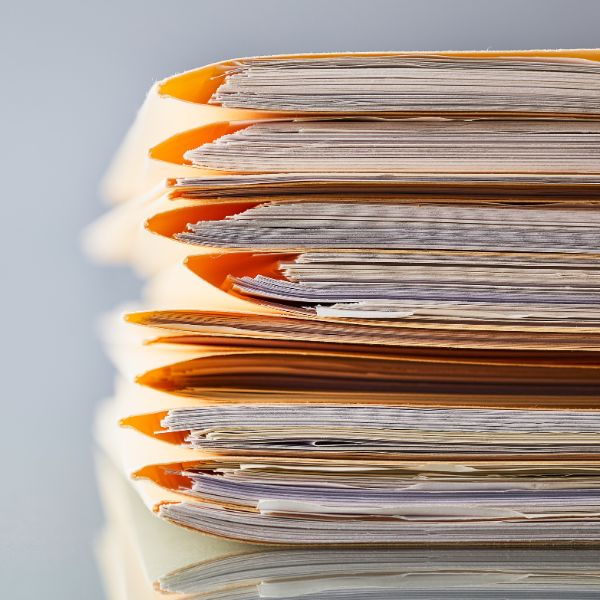
If you have lived in France for any amount of time you know how it is important to have the necessary documentation ready. With some French authorities I have found that they may request documents you have already sent, so make sure you have several paper copies or scanned copies on your computer ready to send off.
If you do not think that the amount is correct you have five years to get any unpaid amounts paid to you, and if you have any issues with your pension authority you should contact them directly. You can usually do this by email or on your online account messenger service.
If you are not satisfied with their response there is a mediation service available. You have 10 days for an urgent request, 40 days for non urgent requests, which may be extended to 90 days in more complex cases, and two months to apply to the Commission de Recours Amiable (CRA). If you are still not satisfied with the decision you can apply to the Defenseur de droits.
For those whose deceased spouse worked in France they may be entitled to a French widow/ers pension. Like other pensions, this should also be paid to you within four months of the date of application. However, this pension is means tested according to your annual income so you may find that you don’t qualify for it.
It is important to plan ahead and there are many things you can do at various stages:
-
- Throughout your working life in France, keep all paperwork. As cumbersome as this may be, it is important to keep all payslips, pension letters, social security payment statements, as you may need them when you apply for your pension.
- From age 50, if you haven’t already created and consulted your account on the www.info-retraite.fr website, now is the time to do it. You should regularly download the career statements and save a copies. Sometimes any missing periods may appear on earlier statements but not on later statements.
- From age 55, you can request pension simulations. The closer you get to retirement the more accurate these simulations are likely to be.
- Once you reach 61, think about working part time from age 62 as a progressive retirement and look at buying back any missing trimestres. You have to buy back the trimestres before going part time. Once you start receiving your pension you cannot buy back any missing trimestres.
- 4-6 months before your retirement date, start applying for your pension.
Can an employer force you to retire?
Strictly speaking an employer cannot force you to retire before you are 67 years old. If you want to retire before this date you have to request to do so and comply with the requisite notice period. Only when you are over 70 can an employer require you to retire without consulting you. Between 67 and 70 they can retire you, but only if you agree to leave. It is better to be asked to retire rather than voluntarily taking retirement since the statutory amount of retirement benefit is higher than the voluntary retirement benefit when it is the employee that requests it. You may have even more favourable provisions in your Convention Collective. This retirement benefit is exempt from income tax (except the higher amounts) whereas the voluntary retirement benefit is taxable in the same way as your salary.
For any questions about your pensions or planning your retirement, please do get in touch.
Financial update May 2024 – France
By Katriona Murray-Platon
This article is published on: 3rd May 2024
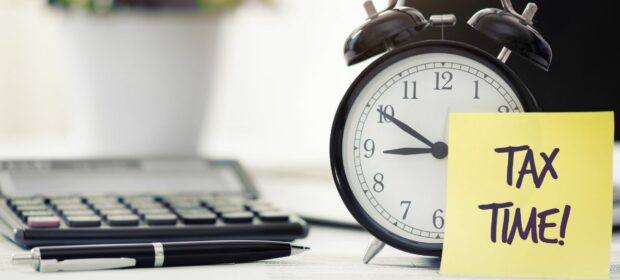
Tax season is in full swing at the moment and as with every year I have been getting lots of questions and queries relating to tax matters in France.
Over the April holidays I did sit down to do our own tax return and therefore was able to see whether there were any new aspects in the online declaration. I’m one of those people who prefers to know rather than waiting for surprises and this particularly applies to tax returns. Either we will have more to pay in which case it would be best to be prepared or we have less to pay in which case I want to know how much the tax refund will be. Because of the increase in the tax bands, if your income was comparatively the same in 2023 and in 2022, then you should have less tax to pay this year. In spite of my many years of experience of doing tax returns, I am not infallible and I did actually have to go back into our tax return to correct it. So based on my own mistakes I thought I would give you some tips about what to do and what not to do!
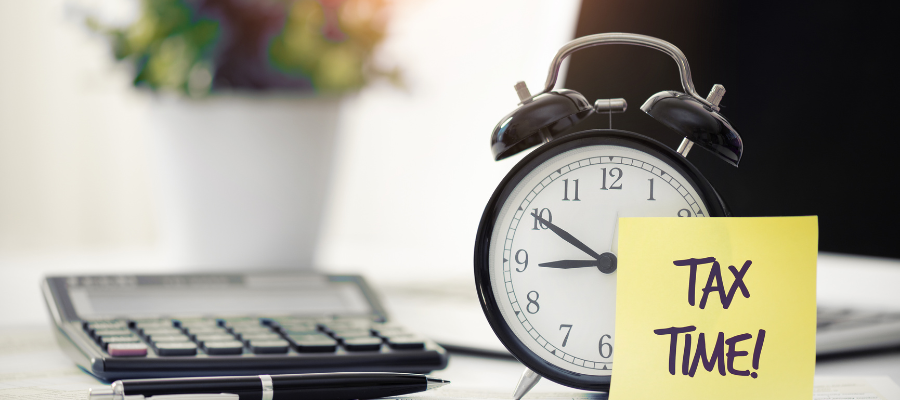
- COLLECT YOUR FIGURES – Make sure that you know what kinds of income you and your partner received and what the figures are whether they are taken off a bank statement or a certificate. If you have foreign income you will also need to know the exchange rate on the date on which you received the income or the average Bank of France rate for 2023.
- CHECK THE FIGURES ALREADY ENTERED ON THE TAX FORM – if you or someone in your tax household has received income from a French source (pension, salary, French bank income etc) then this should already be entered on the tax form. Nonetheless it is still worth checking that these figures correspond with any certificates issued by the relevant body or the December 2023 payslip. Even though my husband works for a French public body they don’t always communicate the right figures to the French tax office so I have learnt that it is worth checking and querying any differences.
- CHECK THAT ALL THE DIFFERENT TYPES OF INCOME ARE TICKED – Before you get to actually declaring the income you need to tick the boxes of which type of income you will be declaring. Some may already be ticked from previous years but others may not be even though you have been declaring the same type of income for years. If you have received another source of income then you need to tick the box for this new category of income. If you are declaring online not all the pages and the boxes will appear and it is easy to overlook something.
- REMEMBER THE ANNEX FORMS – in particular the 2047 for foreign income and the 3916 for foreign bank accounts. Regarding the latter, your information from the previous year should already be entered so you only have to carry over this information from last year but if you have opened or closed an account in 2023 or one is not mentioned on the form you will have to fill in the details. You will also have to declare the value as at 1st January 2024 of any foreign assurance vies. For the 2047 you may need to swap between this form and the main 2042 form to check that all the income is correctly entered and carried over onto the 2042.
- DON’T FORGET YOUR TAX CREDITS – We have had a piano teacher paid via CESU and the amounts declared were already entered on the tax form however the amounts paid to our cleaning company were not. So if you have had any home help (cleaners; gardeners, lessons etc) they should have sent you a tax certificate for last year so you will need to enter that amount in the tax credit section.
- RETIREMENT CONTRIBUTIONS – more and more of us work in France and contribute to some sort of retirement (PERP or PER). This was where I made a mistake this year because whereas the amount showed on the form, it is not deducted from your tax until you reenter these amounts in the correct box. Given that this is a deductible expense from your income it can amount to a significant tax reduction, so it is important to make sure that it is is correctly entered.
- CHARITABLE DONATIONS – this is another one often overlooked. Normally any charity you donate to should have sent you a tax certificate and you will need this document to claim the tax deduction. If you know you have made a donation make sure that you find the tax certificate or request it from them if they haven’t already sent it.
- NOBODY IS PERFECT – you can start your declaration and go back to it. You can do one version and then go back and change it. Once you get to the signature page which shows the tax due (this won’t appear if you have foreign income that will receive a tax credit) if something seems wrong you can go back and amend it. You can do this as many times as you like until the official deadline without it generating separate tax bills and even after the deadline provided you have submitted something before the deadline. If it gets close to the deadline it is better to declare something and sign the tax return and then correct it at a later date rather than incur a fine for late submission.

The tax filing deadlines are as announced in my previous Ezine however the deadline for filing the paper return is Tuesday 21st May before midnight.
You need to get it into the post box before this time even if it will be collected the next day.
If you haven’t already engaged a tax lawyer or accounting firm to help you out with your tax return then it is too late to do so as they will be too busy at this time of year. Therefore you need to get something onto the tax form and get it submitted by the deadline. It doesn’t matter if it is incorrect you can always amend this year’s tax return at a later date.
If you have any questions on your taxes or finances in France please do send me an email and I would be happy to arrange a time to speak to you.
Financial update France – April 2024
By Katriona Murray-Platon
This article is published on: 4th April 2024
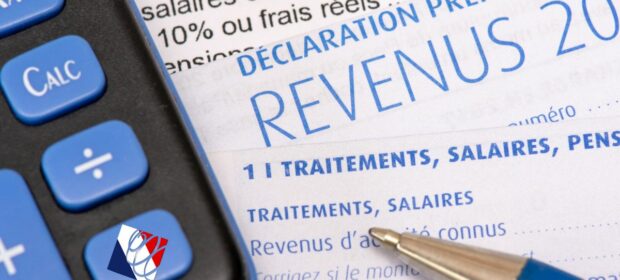
April is an important month of the year as, not only is it the end and beginning of the UK tax year but it is also the beginning of the French tax season.
If you are impatient to start declaring your income for 2023 then the tax forms should be available in the next week or so (at the time of writing no official date has been given) but whether you decide to get started in April or wait until May it is important to know the deadlines for submitting the forms.
If this is your first year submitting your tax return you will need to do a paper declaration by the 20th May 2024 (date to be confirmed). Which means that you need to collect the paper forms from the tax office and fill out the information by hand.
The other dates for the online tax declaration service are:
| Department | Filing deadline |
| 01 to 19 | Thursday 23 May 2024 at 23h59 |
| 20 to 54 (including 2A and 2B) | Thursday 30 May 2024 at 23h59 |
| 55 to 974/976 | Thursday 6 June 2024 at 23h59 |
| Non-residents | Thursday 23 May 2024 at 23h59 |
I shall be tackling our tax return in the April school holidays so in my next Ezine I shall be addressing any issues that I have noticed and be giving you all my tips for filing your 2023 income tax declaration.
Do you remember the fun you had last year doing the occupied properties declaration? Well, the good news is that you don’t have to do it every year! You only need to do another one if there are any changes to the occupancy of your properties. Whilst the declaration does have to be done online,18% of property owners did not do a declaration last year and the tax authorities shall be issuing a new paper declaration for those who are unable to do their declaration online.
Did you know that students do not pay taxe d’habitation on their student accommodation (CROUS)? However, a ministerial response in January (no 7826 of 09.01.2024) has clarified that this exemption also applies to students who are still included on their parents’ tax returns but who live away from their parents in private student accommodation or who flat share.
As from 1st April many benefits, including family allowance, disability allowance and RSA, will increase by 4.6%, as a measure to mitigate the effects of inflation.
Those of you who do furnished rental were quite alarmed by the French government’s “faux pas” in the 2024 finance bill which lowered the micro threshold to €15,000 and the abatement to 30% thus forcing those who were over this limit to go into the costs (regime reel) based system. As expected, this has now been rectified and landlords can use the former thresholds (€77,700 micro-BIC with a 50% abatement for costs – https://bofip.impots.gouv.fr/bofip/3610-PGP.html/identifiant%3DBOI-BIC-CHAMP-40-20-20240214). Hopefully all the organisation will have got the memo but if you do have any problems please do refer to the link above. As always, if I hear anything further on this I will let you know.

There are three pillars to the French pension scheme, the basic social security pension, the complementaire points based system and the private PERs. I strongly advise anyone who has worked in France to create their profiles on the www.info-retraite.fr website and to regularly consult this website especially when you are getting closer to retirement age. I noticed on my own account that whilst I had accumulated points as a salaried worker, since starting my business in 2017 I had not received any further points nor had I been asked to contribute to receive them. This has now all been cleared up by a decision of the Council of State on 9th February 2024 (no 471203) which nullified a decree that provided that auto-entrepreneurs under the micro-BNC regime and micro-social regime that pay a set rate of social contributions of 21.1% do not acquire points under the complementaire retirement scheme. A new law should be published soon rectifying this as from 1st June. This will however imply that the rate of social charges will increase.
If you have any questions on your finances or taxes in France please do get in touch and I would be happy to arrange a phone call or meeting to discuss your concerns.
Financial update France March 2024
By Katriona Murray-Platon
This article is published on: 6th March 2024

For me it always feels like January is such a long month, February passes in a blink of an eye and all of a sudden it’s March and there is so much excitement and activity. I had a few days off at the end of February to spend time with my boys, rest and recuperate and catch up on some reading.
One of the things I like to read is the Le Particulier magazine and this month they had a very interesting special limited edition on how and where to invest in 2024. There was a lot of information in this special edition which I found fascinating but also a lot that confirmed many things I had been advising for a while.
One key point is that whilst having savings accounts such as the Livret A, the LDDS and (if you are eligible) the LEP are great places to keep your money in the short to medium term, by which we mean in the next 5 years, these accounts should only be used as emergency funds or money destined for a particular project that you intend to carry out soon. This is why on the Spectrum Confidential Review document we ask our clients which bank accounts they have, what the interest rate is on them and what is the purpose of this money. If there isn’t a reason to have these savings and you can’t foresee a reason for using the funds within the next five years, then it is important to think about investing some of it as, no matter what the rate currently offered, such rates will not protect your money from inflation over the long term.
I’m often asked about how to save money for children. If you have a child aged between 12 and 25 years of age you can open a Livret Jeune in addition to them having a Livret A. Your children who are included in your tax return cannot have a LDDS as these are only for tax payers. However the Livret Jeune can have a maximum capital of €1600 and whilst the interest rate is not fixed by the Banque de France, banks are required to set an interest rate which is at least the equivalent of the Livret A but may also play the competition and offer more.
In the longer term it is important to invest and the preferred way of doing that in France is by using an assurance vie. According to a statistic in this special edition of the Le Particulier magazine, over a period of 20 years the Livret A account had only made 40% compared to a CAC 40, with dividends reinvested, managed fund with a 3% management fee, over the same period made 289%.

March is a month where things start to happen. I read recently that mortgage rates have begun to fall in France. Although the ECB decided on 25th January to keep the key three interest rates unchanged, there is a strong expectation that mortgage rates will continue to fall this year possibly reaching 3.5% this summer and as low as 3% by the end of the year. This will be much welcome news for those looking to sell property in France.
From 1st April you won’t need to fiddle around to try and put the little green insurance certificate square on your windshield. If you are stopped by the police during a routine insurance check they will be able to tell whether you are up to date with your insurance by checking your license plate with their database.
For those invested with the Pru, there was good news this month as on Monday 26th February 2024 the Prudential Assurance Company (PAC) board reviewed the Prufund Expected Growth Rates (EGR) as part of the quarterly review process and once again there were no unit price adjustments. The expected growth rates remained the same for the PruFund GBP Growth and Cautious funds, whereas for the PruFund Growth Euro fund the Expected Growth rate was lowered slightly to 6.6% (previously 6.9% in November) and the PruFund Cautious Euro to 5.7% (previously 6.2% in November).
Although the tax season in France doesn’t begin until April, I know that lots of you will be thinking about preparing your tax returns. If you have any questions on your taxes or any other financial matters please do get in touch.
Financial Update France January 2024
By Katriona Murray-Platon
This article is published on: 8th January 2024
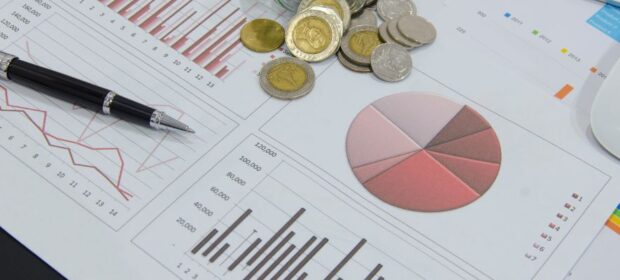
The new year is a great time for setting goals and making resolutions. I read that, according to a recent survey, saving money was the most popular resolution (after losing weight)!
Saving money is a very important habit to have throughout your life. The great thing is that it is never too late or early to start saving and you don’t need to put aside a lot. Just like it is not a good idea to do fad diets but more to make manageable improvements to your lifestyle, it is better not to make too ambitious savings plans but to put aside small regular amounts that build up over time.
The French standard savings accounts are currently earning 3% which will remain as such until the beginning of 2025. You are allowed to put €22,950 of capital into a Livret A and €12,000 into a LDDS. Once you have reached these limits you cannot put any more into it but the interest compounded over the years can be added to these amounts. The LEP is the highest remunerated savings account, currently at 6%, however if you are eligible for this account you should take advantage of this rate as soon as you can as it may drop to 4.2% on 1st February. If you are eligible you can have 2 LEP accounts per household and can put up to €10,000 of capital into it. To be eligible one person alone must not have earned more than €21,393 in 2022 as declared in 2023. Your bank will not automatically suggest that you open this account so it is for you to check whether you are eligible and request to open a LEP. There are other savings accounts and term accounts that the banks may offer but the rates on these are around 3% and unlike the above mentioned accounts, they will be subject to tax and social charges.
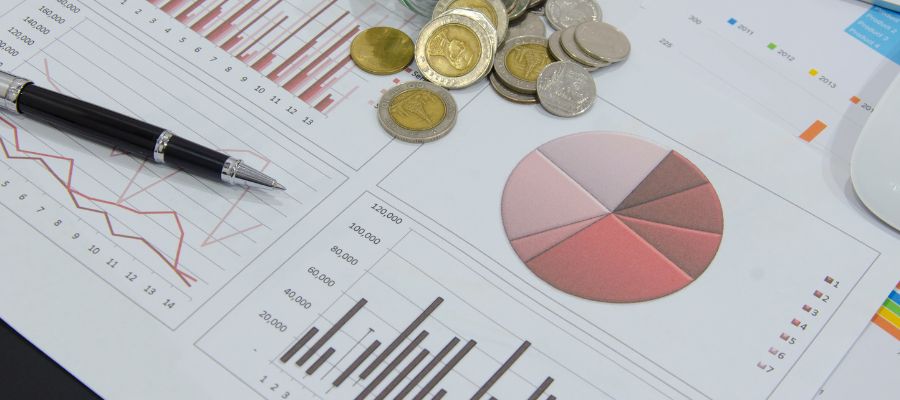
Whilst we don’t know how the market will react to various events and political developments in 2024, fixed income assets could continue to provide good earnings this year. Our investment providers have seen good steady returns in 2023 in their more cautious funds. Whilst savings and fixed interest assets are good to have, it is also important to have some equity based investments. According to a Credit Suisse study published in February 2023, the actual annualised return (after inflation) on the savings accounts in France was -0.8% per year between 1923 and 2022, compared with +6.1% from shares.
On the 15th January, if you have had home help expenses (cleaner, gardener etc) you will get 60% of this tax credit paid to you. The remainder will be taken off your taxes in September.
I will be attending our annual conference in Budapest from 22nd to 26th of January and will have lots of information to pass onto you when I hear the presentations from our product providers. Also coming in my February Ezine will be the news from the adopted French Finance law for 2024.
It is never too late or too early to financial planning so do get in touch and recommend your friends to get in touch with me for a free financial consultation.
Financial update France December 2023
By Katriona Murray-Platon
This article is published on: 6th December 2023

Here we are already at the end of the year. 2023 has been a year of highs and lows, not for me personally or professionally, but in the markets. If you look at any of the main markets or indexes you can see that 2023 has been a challenging year for investors. Of course there are still several weeks left in December so it is too early to say how the year will end.
At the end of November the UK chancellor presented the autumn statement. Whilst much of this does not affect those of us in France, Mr Hunt did confirm that the triple lock would be maintained and the pension payment would increase by 8.5% in April 2024. If you are entitled to the new State pension you will get £221.20 a week from April. Those pensioners who qualified for their pensions before April 2016 will also see an increase from £156.20 currently to £169.50 per week. Unlike in the UK the tax bands in France have been increased for 2024 so this means that, subject to the exchange rate, pensioners in France will get more income but pay less taxes next year.
The Bank of England decided in November that it would not increase interest rates and would maintain it at 5.25%. Whilst this is unlikely to change in the medium term, with inflation falling to 4.7% in October, it has been no surprise to me to read in the UK press that many banks are dropping the high interest rate accounts that have been on offer over this past year.
Please remember that most companies and business owners have to pay CFE by 15th December. As the CFE is a local tax and the other local taxes like the taxe d’habiation and taxe foncière increased this year, it should come as no surprise if you find that your CFE has also increased.
As we head towards the end of the year there may still be some things you might want to consider doing to alleviate your tax burden next year. Tis the season for giving so if you haven’t already been making charitable donations monthly during the year or you want to make one off donations at this time of the year, you can deduct between 66% to 75% of the amount donated, depending on the status of the chosen charity, and up to 20% of your annual taxable income. Also, if you have a PER and are in a position to make a contribution to it before the end of the year, this is also deductible from your taxable income.
There was good news for those invested in the Pru as, at the quarterly review of the Expected Growth Rates on 27th November, there was no changes to the EGRs and no Unit Price Adjustments. This was welcome news since there had been three consecutive downward Unit Price Adjustments in the PruFund Growth Sterling fund in previous quarters.

Looking forward, I always like to remain positive and hopeful however I have learnt that it is also important to manage expectations. One of our product provides reminded me that there will be many countries heading to the polls in 2024 and that this is likely to cause turbulence and volatility in the markets.
The OECD predicts that “In the absence of further large shocks to food and energy prices, projected headline inflation is expected to return to levels consistent with central bank targets in most major economies by the end of 2025.” It further stated that whilst “Global growth is projected to be 2.9% in 2023, and weaken to 2.7% in 2024. As inflation abates further and real incomes strengthen, the world economy is projected to grow by 3% in 2025”. Of course, whilst these are based on careful analysis and good information, they are just predictions and as we have seen things often turn out better than most analysts ever predicted.
No matter what happens my job is to be there for my clients, to advise them on their investments and provide them with the proper information to help them make the right financial decisions so please do get in touch if you would like to arrange a phone call, video call or face to face meeting.
I shall be celebrating Christmas here in France and then New Years in the UK. There are still plenty of dates available for meetings before the end of the year but if I don’t speak to you before then I wish you all a very happy holiday season and all the best for the new year!
Financial update France
By Katriona Murray-Platon
This article is published on: 7th November 2023
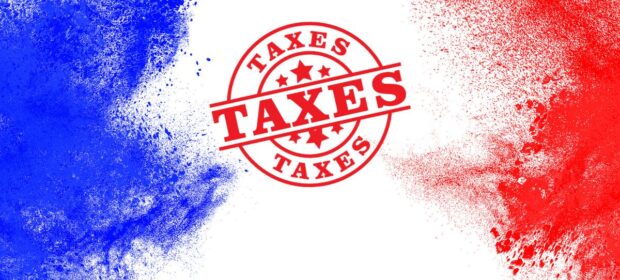
November is here, the temperatures have dropped and it is cold and rainy outside. So here is some good financial news to warm you up!
Since the 1st January 2023, Taxe d’habitation no longer applies to the main residence. Now it is only those with a second home who have to pay taxe d’habitation on their second property. The tax statements should be on your online account on the impots.gouv.fr website in November. You have until 15th December to pay this tax.
In France, one out of ten houses are considered to be second homes by the tax office. These properties are mainly to be found on the coast (40%) or in the mountains (16%) with the remainder being mainly in the larger towns and cities (12%). These properties are usually smaller than the main home with a quarter of them being less than 40 m².
Contrary to what some newspapers would have you believe, any taxes on second homes largely affect French owners and not foreigners, since only one out of ten second homes are owned by a person living outside France. Among those owned by French residents, two out of three properties are owned by people over 60. This figure increases to three out of four along the coast. 34% of properties are owned by higher income households. https://www.insee.fr/fr/statistiques/5416748.
Make sure that you check your Taxe Foncière statement that you received in October as there could be a mistake on it. According to the French tax office approximately 1.87 billion euros have been overpaid just in 2023 because of mistakes made by the tax office.
The draft finance law has been making its way through parliament. Article 2 of the draft finance law for 2024 has increased the tax brackets by 4.8%. The new proposed tax brackets are as follows:
| Income | Tax rate |
|---|---|
| Up to €11,294 | 0% |
| From €11,294 to €28,797 | 11% |
| From €28,797 to €82,341 | 30% |
| From €82,341 to €177,106 | 41% |
| Over €177,106 | 45% |
If you are in receipt of a French pension through Agirc-Arrco, the additional pension (complémentaire) will increase by 4.9% in November. It increased last November by 5.12%. The French State pension will also increase by 5.2% from 1st January 2024.
If you haven’t already looked into carrying out work on your house to improve your heating or energy efficiency, now may be the time as the amount of the bonus (MaPrimeRenov) has increased on average by €4300.
The maximum amount that you can put into a LEP savings account has increased since 1st October from €7700 to €10,000. The interest rate on this amount remains at 6%. To be eligible to have a LEP, your taxable income (revenue fiscal de reference) for 2022 as stated on your tax return received in Autumn 2023 must be less than €21,393 for a single person, or €32,818 for a couple.
The 30th November is the date by which you must inform your bank if your taxable income (revenu fiscal de reference) in 2021 was less than €25,000 as a single person or €50,000 as a couple, so that they don’t automatically take the 12.8% tax from the interest on your savings in 2024. If you receive dividends, the income thresholds are higher, €50,000 for a single person and €75,000 for a couple. This is particularly important if your income is not taxable or in the 11% tax bracket. These thresholds remain the same as previous years and have not increased with inflation.
November is the month when you can see the most beautiful autumn colours around France. It is also a great time to review your finances and make plans for the year ahead. If you have any questions on the above or any other matters, please do get in touch!
Financial update in France October 2023
By Katriona Murray-Platon
This article is published on: 4th October 2023
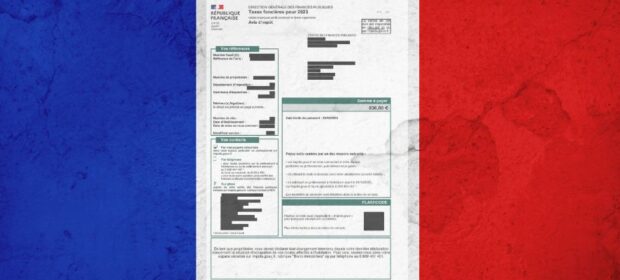
September is a gorgeous month in France and this year has been no exception. For me September often goes by in a whirl – with the children back at school there are still after school activities to organise and parent-teacher meetings to attend.
However, for those who are not affected by the back to school mayhem September is a great time to enjoy the warmer weather and the beauty spots of France once the summer tourists have left.
Further to what I wrote in my last Ezine, the interest rate on the Livret A and Livret de Développement Durable et Solidaire (LDDS), which was expected to rise to 4%, shall instead remain at 3% and the French government has committed to keeping it at this rate until 2025. However, an appeal against this decision has been brought before the Conseil d’Etat. The interest rate of the Livret d’Epargne Populaire (LEP) has already dropped slightly from 6.1% to 6%.
If you realise you have forgotten to declare something on your 2022 tax return or you wish to correct an amount, you can, since the 1st August, amend your return on your online space on the impots.gouv.fr website. This service will be available until 11.59pm on 6th December. You should have already received your tax statement for the declaration you did in May and you should pay the amounts requested on this statement but if you do decide to amend your tax return, a new statement will be issued and any overdue amounts will be adjusted or repaid.
The tax authorities should already have your bank details that you provided to take any overdue tax from your account or pay any reimbursements. If this is not the case and if you have less that €300 to pay, you have to pay this by 30th September using the online service. If you have more than €300 to pay on your 2022 tax bill, these amounts will be taken on 26th September and around the 25th of October and November with the last quarter of the payment being taken out of your account on 27th December.
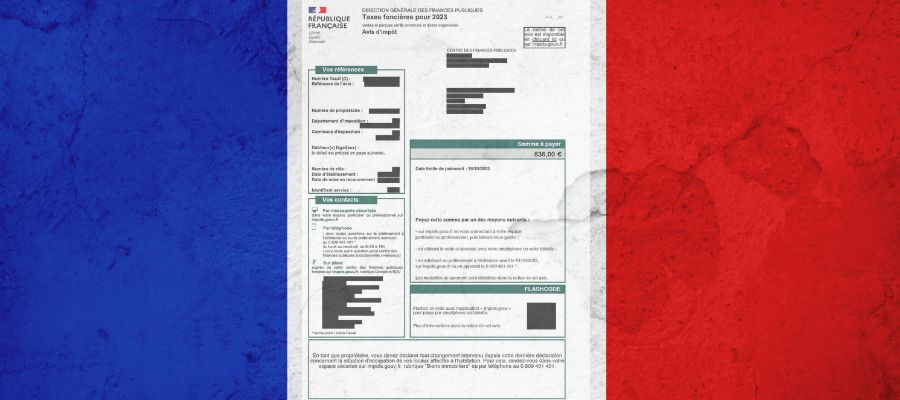
October is the month for the taxe foncière which is due by 16th October or 23rd October if you pay online or with your telephone or tablet. If you have already received your statement, you may have noticed an increase in the amount. The taxe foncière increased by 3.4% in 2022 but it has increased by 7.1% in 2023. This is an average and does not include any increases that the local councils may have voted. The sharp increase is due in part to the annual review of the rental value of the property which takes into account the Consumer Price Index which itself is determined by inflation.
Not everyone has to pay the taxe foncière. There are exemptions for those on pension benefits (ASPA) or disability allowance (ASI and AAH) as well as for those who were 75 and over on 1st January 2023 if your taxable income (RFR) for 2022 was less than €11,855 for one person or €18,233 for a couple. If one partner is over 75 and the other isn’t they can still be exempt. If a person is in a retirement home, their former home, provided it is not rented, is also exempt. New constructions, extensions or changes to buildings (a barn conversion for example) may be partially or totally exempt from taxe foncière for the first 2 years unless the local council has decided otherwise.
Although 2022 was a difficult year financially, this has not stopped the French from investing in Assurance Vie policies. According to the data published in the Le Particulier magazine in September (no 1208), 144.4 billion euros was invested in assurance vies in 2022, only slightly down from 2021 when 148.6 billion euros was invested. Most of this was in Euro Funds which, in spite of their steady decline over the past ten years, saw a slight increase in 2022 to 2% which is however less than the rates on the Livret A and LDDS.
In other news in September, I had the very great privilege of being invited to the GREAT event, organised by the British Embassy, in honour of the King and Queen’s visit to Bordeaux in September. Around 1500 people, French and British, were invited to this special event at the historic Place de la Bourse where we mingled with other members of the Bordeaux British community, bilingual professionals and business owners; sampled British foods, wines and sparkling wine and enjoyed music by local British artists. In addition to seeing the King and Queen, who arrived by tram to this event, Paddington Bear also made an appearance and the Fiji Rugby Team were also there and sang a beautiful song to the King as he was leaving. It was a very special and enjoyable day!

